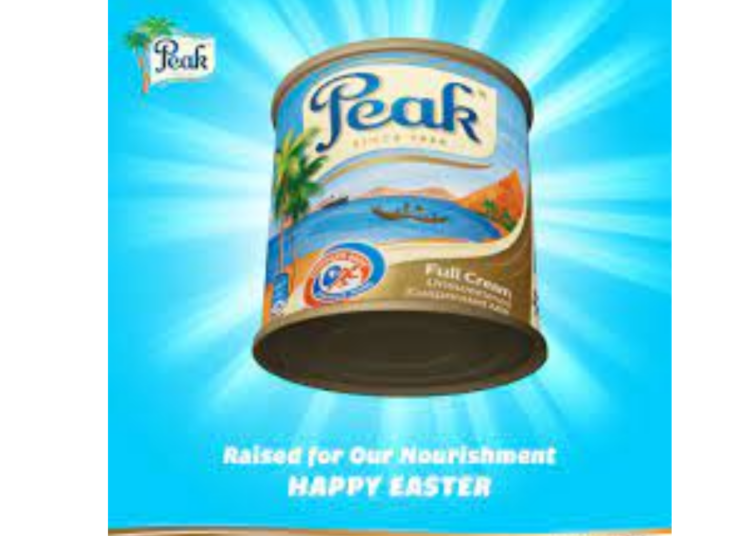The recent trend of business brands displaying reckless disregard for the values and religious inclinations of their customers is becoming increasingly deplorable. Peak Milk’s recent advertisement, aimed at boosting sales during the Easter period, was distasteful and disrespectful to the Christian faithful.
The advert featured a photograph of a dented tin of Peak Milk, punctured in two places, with a nail dripping milk beside it. The caption read: “Bruised and Pierced for us. #GoodFriday.” As expected, the advert sparked a lot of negative reactions, with the Christian Association of Nigeria (CAN) condemning the insensitivity of the advertisers and advertising regulators threatening sanctions.
FrieslandCampina WAMCO Nigeria Plc, manufacturers of Peak Milk, apologised to CAN for using the crucifixion of Jesus Christ as a metaphor to promote their product on Good Friday. The social media advertisement was subsequently withdrawn. In a letter to the President of CAN, the executive director of FrieslandCampina WAMCO Nigeria Plc (Corporate Affairs), Ore Famurewa, acknowledged the sensitivity of the social media post, “considering the sobriety of the season.” He also stated that it was not intended to make “light of the significance of the season nor to inordinately exploit the unmatched sacrifice of Jesus Christ.”
As a paper, we believe that the management of FrieslandCampina WAMCO Nigeria should have known better, given the backlash Sterling Bank experienced last year after it put out an equally distasteful advert during the Easter Day celebration. In its Easter advert, Sterling Bank posted a picture of a golden-brown bread divided into two with the caption “Like Agege Bread, He Rose!” Agege bread is a popular bread brand in the South West known for its soft, stretchy, and chewy texture.
The Sterling Bank advert sparked public criticism from Nigerians who chided the bank for diminishing the essence of Easter. CAN was also miffed, and the Advertising Practitioners Council of Nigeria (APCON) threatened sanctions. Sterling Bank apologised, and we all moved on with the hope that such reckless insensitivity to people’s faith would not happen again. Unfortunately, the Peak Milk incident happened indicating an inclination to exploit the docility of Christians on matters that cast a slur on issues they claim to hold sacred.
It is curious that such brands would show such reckless disregard for the faith of their consumers in pursuit of profits. We expect their due diligence teams to be on task to ensure that such fundamental errors in judgment are not committed. How could they have been too engrossed in meeting their financial bottom line at the risk of sparking a religious uproar? We had expected that brands of this size would commit as much energy and resources towards respecting customers’ values as they do while seeking to have their products and services sold.
While we note the threat by the advertising regulatory agencies, we believe it’s time for them to bite harder than mere barking. The Sterling Bank advertisement was neither submitted nor approved for exposure by the Advertising Standards Panel (ASP), the statutory panel charged with the responsibility of ensuring that advertisements conform to the prevailing laws of the federation as well as the code of ethics of Advertising in Nigeria. We doubt that the Peak Milk Advert passed through the scrutiny of the body. If so, it tells so much about the responsibility of the regulatory body.
However, while noting the apology of Peak Milk, we opine that stiff public sanctions should apply to serve as a deterrent to such reckless actions by other brands. A mere tap on the wrist won’t cut it this time, hence we see a repeat. We commend CAN for its prompt reaction on the matter. The intervention of the religious body helped to douse the situation from taking a possible ugly turn.





